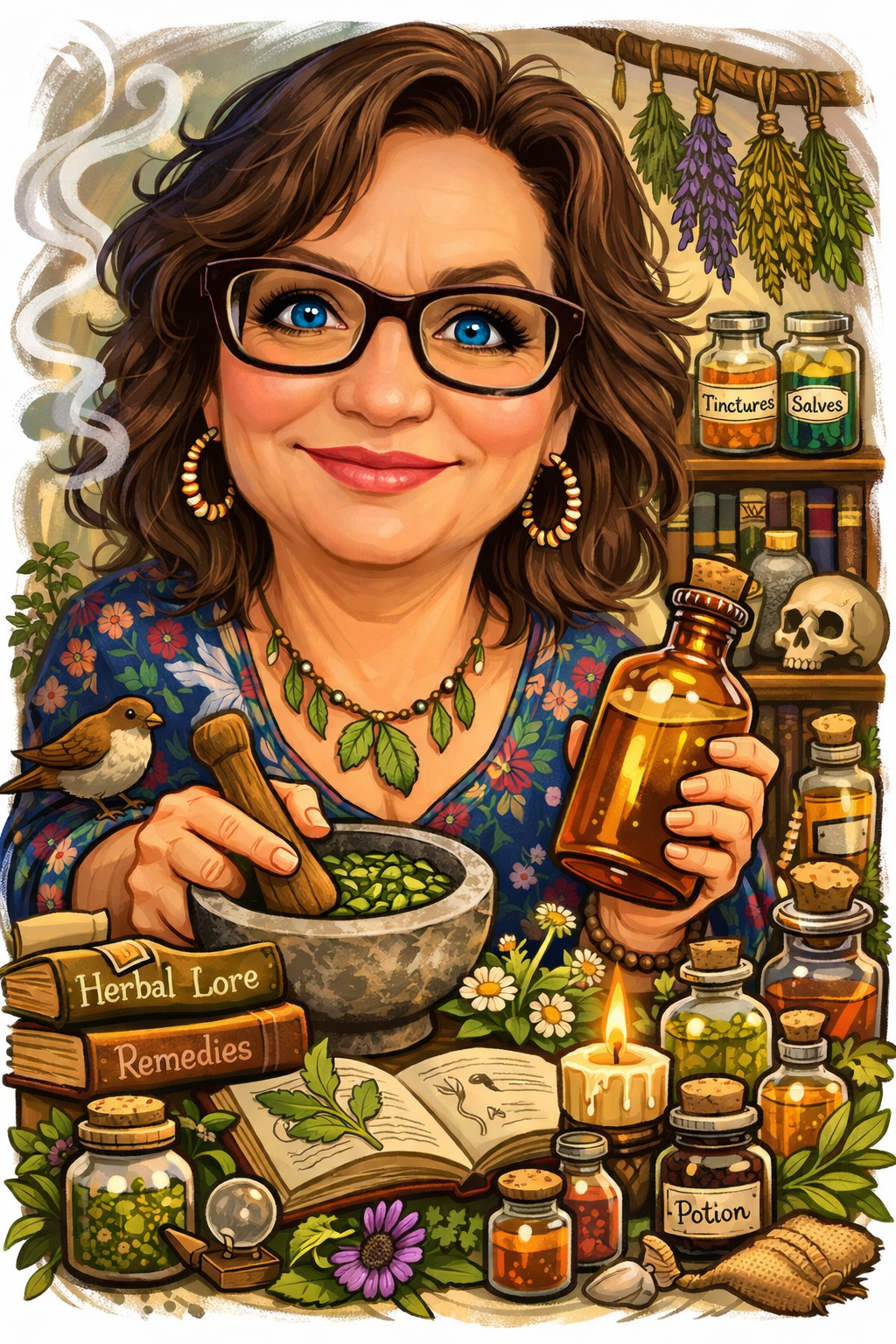Herbal Support for GERD & Acid Reflux
Herbal Support for GERD and Acid Reflux: A Natural Approach to Digestive Harmony

Image by Kathy McCabe and Copilot
Gastroesophageal reflux disease (GERD) and acid reflux are more than just occasional discomforts—they’re persistent issues that affect millions and often disrupt daily life. While conventional treatments have their place, there’s a growing interest in herbal approaches that gently support the digestive system, soothe inflamed tissues, and help restore long-term balance.
For me, it’s a daily battle. I have to avoid many yummy foods to keep it at bay. Also, I’m very susceptible to the heat, which aggravates acid reflux, so I spend much of the summer indoors.
What Is GERD, Really?
GERD happens when stomach acid flows backward into the esophagus, often because of a weakened lower esophageal sphincter (LES). This can lead to symptoms such as:
- Heartburn and sour burps
- Regurgitation of food or fluids
- Chest discomfort
- Chronic sore throat or hoarseness
Common causes include stress, poor diet, obesity, and even lying down too soon after meals. If left unaddressed, GERD can contribute to long-term esophageal damage, which is why early, consistent care is so essential.
Herbal Allies That Support Healing
Please consult your doctor before starting any new herbal remedy.
1. Slippery Elm (Ulmus rubra)
Forms a soothing, protective gel that coats the esophagus and eases irritation.
How to use: Mix 1 tsp of powdered bark in warm water and drink before meals.
2. Marshmallow Root (Althaea officinalis)
High in mucilage, marshmallow soothes inflammation and protects delicate tissues.
Best as: A cold infusion sipped throughout the day.
3. Deglycyrrhizinated Licorice (DGL)
Boosts the body’s natural mucus secretions and supports tissue healing.
Tip: Use chewable DGL tablets before meals. Avoid whole licorice if you’re managing high blood pressure.
4. Chamomile (Matricaria recutita)
This gentle flower calms the digestive tract and soothes stress-related symptoms.
Lovely as: A post-dinner tea to unwind both mind and stomach.
5. Ginger (Zingiber officinale)
Stimulates digestion and reduces gas while helping food move more efficiently through the stomach.
Enjoy: Fresh ginger tea or low-dose capsules.
6. Fennel (Foeniculum vulgare)
Relieves bloating and gas, relaxes the GI tract, and eases mild reflux.
Traditional use: Chew fennel seeds after meals or steep as tea.
7. Aloe Vera (Inner Leaf Only)
Aloe’s anti-inflammatory and tissue-healing properties can support mucosal recovery.
Important: Only use decolorized, aloin-free inner gel juice. Sip ½ cup before meals.
What the Research Says
Modern studies are catching up with traditional wisdom:
- A 2020 review in Frontiers in Pharmacology found that Eastern herbal formulas combined with Western approaches (like PPIs) significantly improved GERD symptoms and healing.
- A 2025 study in Nutrients noted how herbal extracts—particularly those high in flavonoids—help reduce inflammation and support the gut barrier.
- Experimental models using herbs like licorice and ginger show reduced esophageal damage and oxidative stress in reflux-prone subjects.
✨ Bringing It All Together: Herbs + Lifestyle
Herbs are most effective when paired with mindful habits:
- Eat slowly and avoid overeating.
- Don’t lie down within 2–3 hours of eating.
- Elevate the head of your bed slightly at night.
- Identify and reduce trigger foods (spicy, fried, citrus, etc.).
- Practice stress management—gentle yoga, breathwork, or mindful meals go a long way.
Let’s go forward in health and healing – Kathy
Sources and Further Reading
- Frontiers in Pharmacology, 2020
- Nutrients, 2025
- Korea Science, 2023
- Healthusias
- Molly Pelletier, RD
- Harvard Health

Kathy is an herbalist/naturopathy practitioner who is constantly researching to expand her knowledge. She came to herbalism after her migraine medicine was suddenly removed from the market and she had to find something new. After discovering the magic of herbs she’s never looked back. She is accredited by the International Practitioners of Holistic Medicine (IPHM) and is an Associate Member of the American Herbalist Guild.
